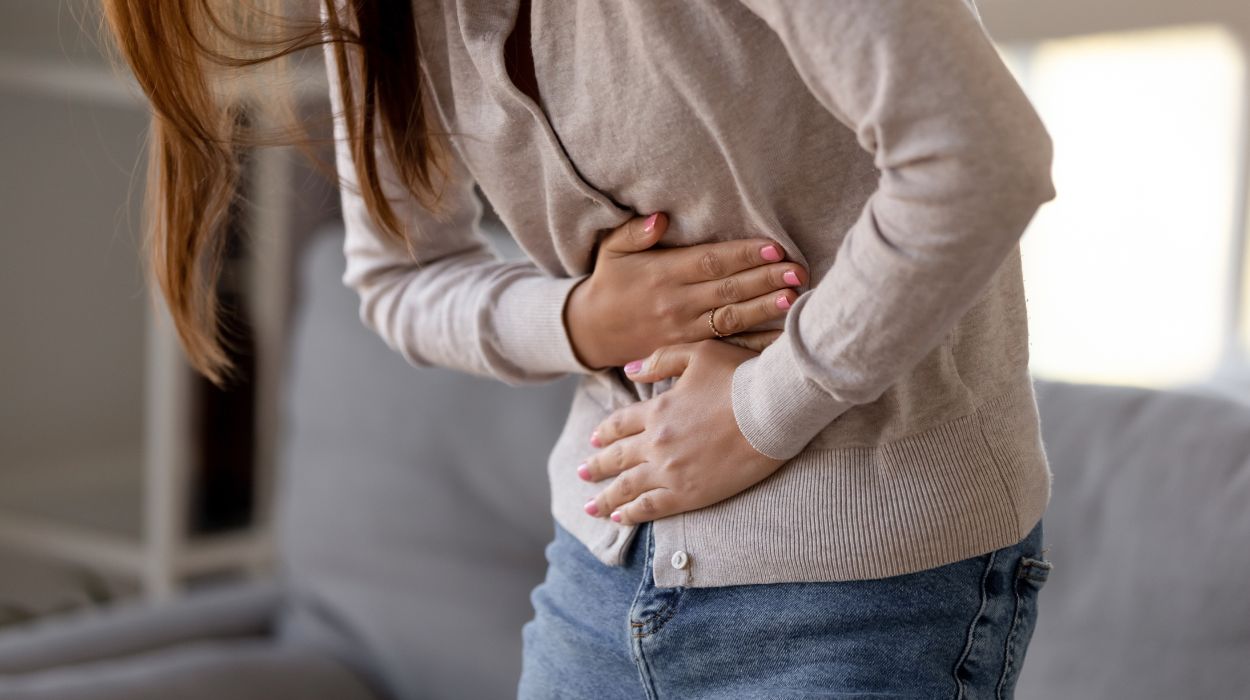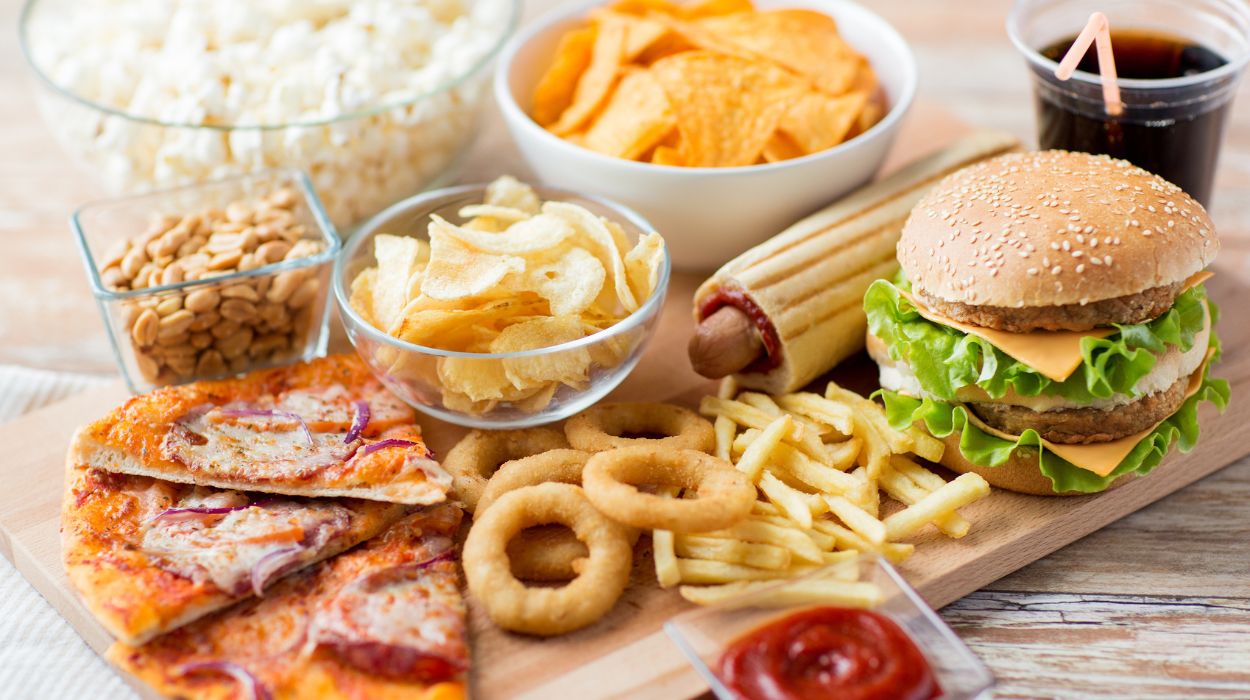 Expert's opinion
Expert's opinion
Expert's opinion
The article is a subjective view on this topic written by writers specializing in medical writing.
It may reflect on a personal journey surrounding struggles with an illness or medical condition, involve product comparisons, diet considerations, or other health-related opinions.
Although the view is entirely that of the writer, it is based on academic experiences and scientific research they have conducted; it is fact-checked by a team of degreed medical experts, and validated by sources attached to the article.
The numbers in parenthesis (1,2,3) will take you to clickable links to related scientific papers.
Diarrhea After Fasting: Causes And What To Do About It 2024

Fasting became all the rage a few years ago, sparking countless debates about how often, how long, and whether or not it’s actually good for you. Within a few years, research showed both positive and negative effects, such as accelerated cell regeneration, weight loss, and improved gut health.
However, the potential drawbacks are serious, including heightened anxiety[1] while fasting and a higher risk of developing an eating disorder.[2]
Another less talked about side effect that has people wondering if it’s truly worth it is diarrhea after fasting. While it doesn’t affect everyone, it can happen from time to time, especially depending on how you fast are. Read on to find out how to prevent diarrhea and if fasting will work for you.
Why Does Intermittent Fasting Cause Diarrhea?
Diarrhea happens when the food you eat passes through your gastrointestinal, or GI tract too quickly. When this happens, your body doesn’t have time to absorb nutrients or go through the process of creating bulk for consistency.
After fasting, your body can become extra sensitive to food. Your digestive system slows down and has a break, meaning it can take some time to get it back to its usual functioning.
Why Does Diarrhea After Fasting Happen?
Diarrhea[3] happens when the food you eat passes through your gastrointestinal, or GI tract too quickly. When this happens, your body doesn’t have time to absorb nutrients or go through the process of creating bulk for consistency.
After fasting, your body can become extra sensitive to food. Your digestive system slows down and has a break, meaning it can take some time to get it back to its usual functioning.
Diarrhea after fasting 48 hours or less is another reason why lengthy fasts rather than binging aren’t healthy. Intermittent fasting diarrhea can also happen when you break your fast with junk food or foods difficult to digest that easily upset your stomach
Keep in mind that fasting and binging are unhealthy not only for your digestive system but also for your mental health, as dieting can lead to yo-yo dieting and eating disorders.[2]
Featured Partner

Low-Calorie
Non-GMO
Vegan-friendly
Get Blown Away By Expert-Crafted Formula
Learn More About Colon Broom – one of the quality supplements promoting regular bowel movements, alleviates bloating, and supports healthy cholesterol levels.
Causes Of Diarrhea After Fasting

Usually, diarrhea occurs after fasting, once the bowels and stomach are in use again. It can also happen while fasting, your digestive system slows when you stop eating. However, if you have too much water or salt in your gastrointestinal tract. This can happen if you drink too many liquids high in caffeine, like coffee or tea. Fasting diarrhea, either during or after, can also be due to an underlying issue, such as
- Unhealthy food is eaten prior to fasting, after a fast, or a poor diet in general
- Spicy foods
- Excess electrolytes or sweeteners
- Malnutrition or nutrient deficiencies
- Malabsorption
- Dehydration
- Medications
- Allergies or intolerances
- Food poisoning, infection, or parasites
- Chronic health conditions, such as Crohn’s or celiac disease, irritable bowel syndrome, or colitis
Side Effects Of Fasting
While most research talks about the benefits of fasting, there are several negative side effects that should be taken into account, such as
- Hunger.
- Headaches
- Malnutrition.
- Dehydration
- Constipation
- Abdominal pain
- Nausea or vomiting
- Dizziness or fainting
- Menstrual cycle changes
- Eating disorders
- Chest pain
- Insomnia
- Anxiety
Of course, you may not experience any of these symptoms and mostly notice health benefits, such as:
- Losing weight
- Increased energy levels
- Improved blood pressure
- Possible reduction in depression.
- Feelings of reward, achievement, and pride.[1]
- Improved blood sugar regulation, insulin resistance, and heart health.
- Decrease in symptoms related to inflammation, such as arthritis, asthma, and multiple sclerosis.
Most negative physical symptoms can dissipate over time, but it could take your body about a month to adapt. It’s also important to start little by little, such as starting with a 10 or 12-hour fasting period and working your way up in 30-minute increments.
Women are also more likely to experience adverse side effects of fasting since hormones are easily affected by a caloric deficit[4] and changes in meal times.
Most professionals recommend that women do not fast for more than 14 hours, while men may have an easier time fasting for 16 hours.
Higher Risk Of Developing An Eating Disorder
In general, if you’ve suffered from an eating disorder, fasting is not recommended. It requires extreme restriction which can create an obsession with food and meal times, triggering disordered eating habits and worsening mental health.
There are countless studies showing dieting and food restriction leads to rigidity, and obsessionality around food, yo-yo dieting, and eating disorders.[5] Unfortunately, many women don’t even realize they have disordered eating habits, such as:
- Using food or exercise as a reward or punishment to lose weight.
- Eating a lot of food at once, too quickly, and until uncomfortably full.
- Pretending to eat while instead moving food around your plate.
- Lying about how much or how often you eat.
- Avoid eating with others.
- Sneaking or hiding food.
- Purging or vomiting after eating.
- Wearing loose clothing to hide weight loss.
If you recognize any of these symptoms, intermittent fasting may not be healthy for you.
These are also signs that it’s time to reach out to a support group or therapist for help. They can offer a judgment-free support system where you can talk about what’s bothering you and learn new tools to manage stress and anxiety that don’t involve food.
How To Avoid Diarrhea During Intermittent Fasting?
You can make fasting as easy on yourself as possible by starting slow, with about 10 to 12 hours, and slowly increasing how long you fast. On top of that, these are some of the best ways to ensure your digestive system has an easy time fasting:
Stay Hydrated
- Make sure to get enough water and electrolytes by sipping water, herbal teas, or broth throughout the day.
- Be careful not to overdo it so that you have too much water in your system, which can lead to a type of fasting poop diarrhea.
Avoid Caffeine During And Right After Your Fast
- Adults should have no more than 400 milligrams or about four cups of coffee per day. Many people note negative effects after one or two cups, so pay attention to your caffeine tolerance.
- Keep in mind that taking caffeine on an empty stomach may exacerbate its effects and cause digestive issues and anxiety.[6]
- Fasting can trigger diarrhea, anxiety, irritability, and poor concentration. If you’re prone to anxiety, jitteriness, irritability, or other negative effects from caffeine, you might need to avoid it altogether when fasting to not exacerbate its negative side effects.
Eat A Small, Nutritious, And Easy-To-Digest Meal Or Snack After Fasting

- Choose fruits and vegetables such as bananas, papaya, watermelon, avocados, or sweet potatoes.
- Proteins like eggs, chicken, salmon, or other types of white fish.
- Fiber including oats, potatoes, rice, psyllium, or whole-grain foods.
- Be sure to avoid overly sweet, salty, and fatty foods.
Have A Healthy Protein And Fiber-Rich Meal Before Fasting
- Many people have dinner as their last meal before a fast. Try to eat a healthy meal at least two to three hours before bed to give your stomach time to digest and empty for a better quality of sleep.
- Make sure you get enough protein and fiber to avoid feeling hungry first thing in the morning.
- Have lemon water, herbal tea, or broth in the morning if needed.
- Keep in mind — if you’re experiencing negative hunger symptoms even with a healthy last meal, it’s time to break your fast and eat.
Avoid Supplements During Or After Fasting
- Supplements can trigger digestive tract issues on an empty or sensitive stomach.
- Take supplements with your second meal or snack after fasting to ensure your stomach and bowel movements are working well first.
Signs It’s Time To Eat
Many people ignore their hunger cues when fasting since that is the general premise. However, this can lead to worsening mental and physical health. So if you’ve noticed any of these symptoms, it’s time to get some nutrition and electrolytes in your body:
- Headaches.
- Low energy.
- Dizziness or fainting.
- Inability to concentrate.
- Stomach hunger pangs.
- Irritability, anxiety, mood swings, etc.
Avoiding giving your body the energy it needs for the sake of weight loss is not in your best interest. It might even have the opposite effect where you get so hungry you binge after a fast and feel upset with yourself, which can just lead to yo-yo dieting.
Pay attention to your hunger cues and allow yourself to eat when your body says it needs food.
See A Doctor
There are physical other symptoms that may develop with diarrhea that require you to call a doctor immediately, such as:
- Pain when passing loose stools.
- Experience diarrhea lasting for over two days.
- Swelling or pain in the abdomen or around the bowel.
- Black appearance, blood, or mucus in the stool.
- Fever above 102 Fahrenheit or 39 Celsius.
- Loss of consciousness.
Before starting any diet, it’s best to talk to your doctor or registered dietitian to ensure it’s safe for you. This is especially the case if you have a chronic condition, take medication, or have a history of disordered eating.
Conclusion
Diarrhea after intermittent fasting can be a symptom of many different factors. It could be due to eating an unhealthy and difficult-to-digest meal after fasting or an underlying issue such as an infection, food intolerance, or chronic health condition like irritable bowel syndrome.
Usually, it passes within a day or two and could simply be a sign that you’re sick or that you need to eat healthier fiber-rich foods.
If negative effects last more than two days, you notice a black or bloody stool or feel faint, it’s time to call the doctor. Also, if experiencing diarrhea after breaking your fast is common, even with healthy and small meals, you may have an underlying condition.
It’s best to get a check-up and do a blood analysis to test for any intolerances or diseases.
Finally, keep in mind that ignoring your hunger to meet your fasting time is not always a good idea.
Mentally, fasting can trigger anxiety, irritability, diet obsession, and disordered eating window habits. Physically, it can give you headaches, and an upset stomach, and cause dehydration and malnutrition.
Fasting is not healthy for everyone, so be sure to pay attention to how it affects you to see if the costs outweigh the benefits.
+ 6 sources
Health Canal avoids using tertiary references. We have strict sourcing guidelines and rely on peer-reviewed studies, academic researches from medical associations and institutions. To ensure the accuracy of articles in Health Canal, you can read more about the editorial process here
- Watkins, E. and Serpell, L. (2016). The Psychological Effects of Short-Term Fasting in Healthy Women. Frontiers in Nutrition, [online] 3. doi:10.3389/fnut.2016.00027.
- Neumark-Sztainer, D., Wall, M., Guo, J., Story, M., Haines, J. and Eisenberg, M. (2006). Obesity, Disordered Eating, and Eating Disorders in a Longitudinal Study of Adolescents: How Do Dieters Fare 5 Years Later? Journal of the American Dietetic Association, [online] 106(4), pp.559–568. doi:10.1016/j.jada.2006.01.003.
- Nemeth, V. and Pfleghaar, N. (2022). Diarrhea. [online] Nih.gov. Available at: https://www.ncbi.nlm.nih.gov/books/NBK448082/
- Meczekalski, B., Katulski, K., Czyzyk, A., Podfigurna-Stopa, A. and Maciejewska-Jeske, M. (2014). Functional hypothalamic amenorrhea and its influence on women’s health. Journal of Endocrinological Investigation, [online] 37(11), pp.1049–1056. doi:10.1007/s40618-014-0169-3.
- Eating Disorders. (2022). Intermittent fasting implementation and association with eating disorder symptomatology. [online] Available at: https://www.tandfonline.com/doi/abs/10.1080/10640266.2021.1922145
- Temple, J.L., Bernard, C., Lipshultz, S.E., Czachor, J.D., Westphal, J.A. and Mestre, M.A. (2017). The Safety of Ingested Caffeine: A Comprehensive Review. Frontiers in Psychiatry, [online] 8. doi:10.3389/fpsyt.2017.00080.



